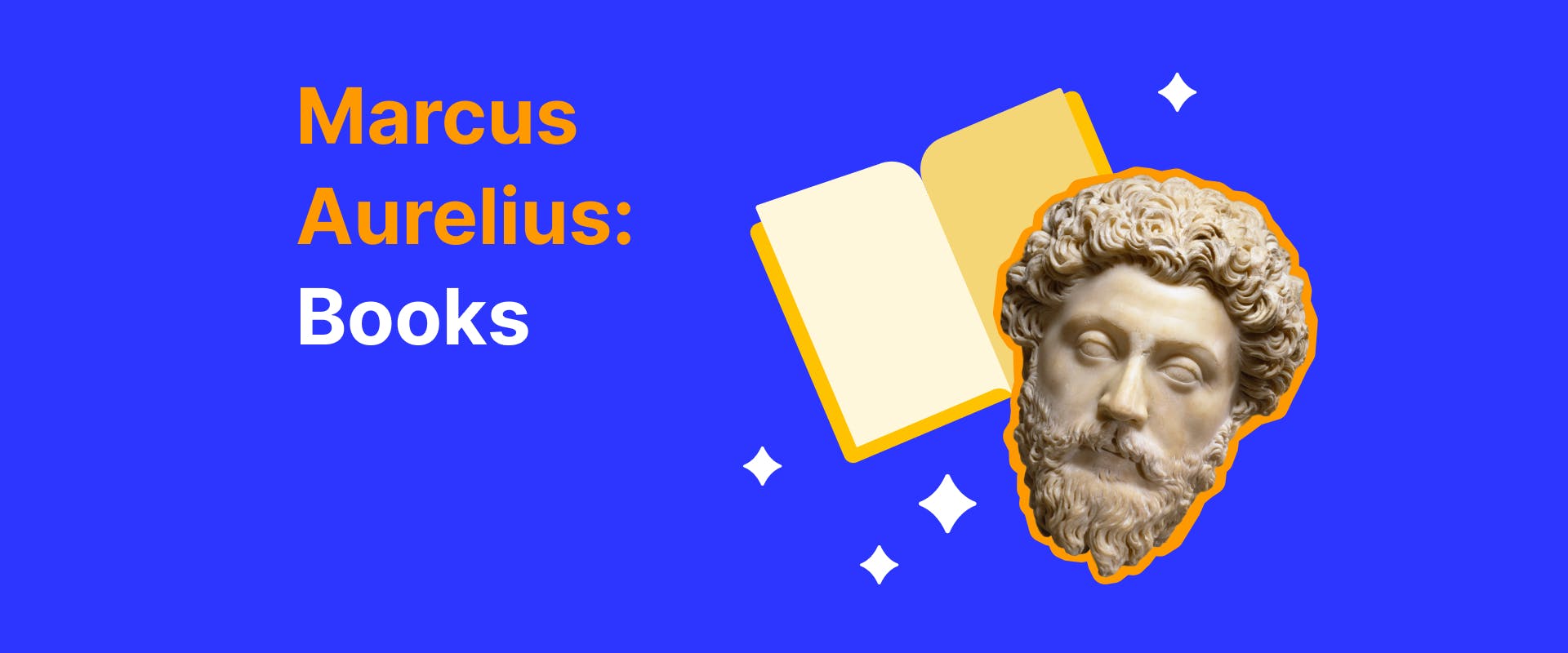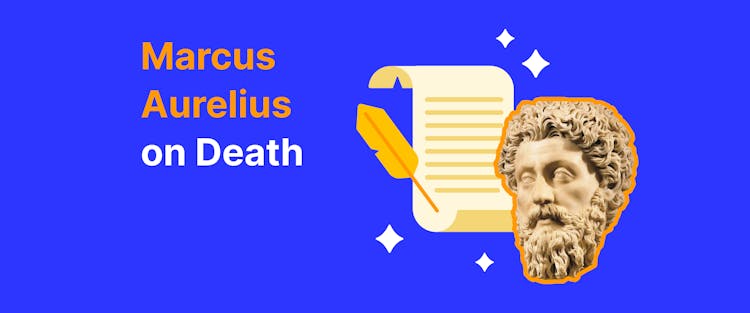Marcus Aurelius stands out as a remarkable Roman emperor. Often referred to as a "philosopher on the throne" by his contemporaries, describing him as a just and righteous leader is fairer. To grasp this, one only needs to delve into the writings of Marcus Aurelius and become acquainted with the ideas he articulated. These are the thoughts of a stoic philosopher rather than the dictates of the ruler of the world's largest empire.
Nowhere in Marcus Aurelius's works will you find mention of the pursuit of power, dominance, or wealth—instead, every page advocates for goodness, forgiveness, and compassion towards others. Without knowledge of history, one might easily mistake the author of these texts for a Christian. However, Marcus Aurelius was a pagan and a staunch proponent of stoic philosophy.
Historical context
The early life and rise of Marcus Aurelius
Marcus Aurelius Antoninus (121-180) was born into a famous Roman family. The father died early, and his closest relatives took up the boy's upbringing. A great-grandfather, Catilius Severus (twice consul of the empire), who surrounded Marcus with the best teachers, played a significant role in his life. Among them was Apollonius of Chalcedon, a Stoic philosopher who introduced the young man to this teaching. Marcus Aurelius later wrote that he inherited from him a free-thinking and prudence, a desire to be steadfastly guided only by reason and to remain faithful to himself in the face of excruciating pain, the loss of a child, and severe illness.
The young man was interested in something other than luxury, gladiator fights, chariot races, and other entertainment that the Romans liked. His idol was Epictetus, a representative of the late Stoia. Young Aurelius was impressed by the ascetic lifestyle of this thinker.
From royal student to Stoic emperor
When he was 17, Marcus Aurelius started his life at the court of Emperor Hadrian, who soon chose him as the heir to the throne. Adrian's decision was primarily influenced by Marcus Aurelius’ personal qualities: his righteousness, kindness, and exceptional honesty, which earned him the nickname Verissimus (True). At 40, Marcus Aurelius became the sixteenth emperor of Rome. He hated war, considering it robbery, but spent eight (according to some sources, twelve) of the nineteen years of his reign on campaigns, protecting the empire's borders.
Historians call the period of his reign (161-180) Felice Tempore a "golden period" of Ancient Rome. The principles of the ruler's responsibility before the law, state care for citizens, and registration of newborns are some of the innovations laid out by Marcus Aurelius. He opened orphanages, shelters for people experiencing poverty, and schools where young Romans could study philosophy.
Marcus Aurelius: The Stoic ruler amidst religious tension
Marcus Aurelius' religious feelings are similar to Neoplatonism and even Christianity (although the latter was persecuted under him). During his reign, the oppression of Christians in various parts of the empire intensified. Whether this happened on his initiative and whether Marcus Aurelius was even involved in these persecutions remains debatable.
According to one of the Roman historians, Marcus Aurelius consistently showed exceptional tact when he needed to shield people from harm or inspire them to act virtuously. He had a talent for reforming morally wayward and uplifting those who were already good, even in the face of criticism from others.
Together with Marcus Aurelius, his dream died—a dream of a state ruled by wisdom and honor. The reign of his son Commodus was marked by plunder, evil, and violence. Commodus destroyed almost everything his father had planted. The Roman Empire, destroying itself from the inside, was headed for an inevitable collapse. Among all the fruits of Marcus Aurelius' efforts, only his thoughts survived the centuries.
Overview of Marcus Aurelius' works:
Marcus Aurelius is primarily known for his work "Meditations." Aside from "Meditations," he did not leave behind a substantial body of written works. However, he did correspond with his tutor and philosopher, Fronto, and some of their letters have survived. These letters offer insights into Marcus Aurelius' character, interests, and intellectual pursuits.
The famous orator became a mentor for future emperors, and this is how he most influenced the formation of Marcus Aurelius - he instilled the understanding that tyranny is evil, it gives rise to slander and hypocrisy, and a heartless and callous soul distinguishes people who have an aristocratic origin. The relationship between the student and the teacher is detailed in the letters to Fronto written by the young Aurelius during a trip to Baia.
In total, the following manuscripts are known: three speeches of Marcus Aurelius, some individual statements of the emperor-philosopher, descriptions of vivid episodes of his life, and an imperial edict regarding the attitude towards Christians.
Marcus Aurelius wrote 12 chapters of "Meditations" in Koine Greek as a source of inspiration and self-improvement, which could be used as a guide in the future. None are located in chronological order and unrelated to each other in content. Most of the work was likely written in Sirmia, where he spent much time planning military campaigns from 170 to 180.
Deep dive into the meditations of Marcus Aurelius
The aphorisms collected in it and the writings addressed "to oneself" call to virtue, intelligent life, and internal self-improvement. The emperor believed only a person guided by reason, not desires and passions, is free. The dream of the Greek Plato and the Roman Seneca about the kingdom of philosophers on earth was never so close to realization as during the reign of Marcus Aurelius.
The work does not have an official title because the author did not intend to publish it and used it as a form of self-reflection for his use. The writing is in the form of quotations, the length of which varies from one sentence to significant paragraphs. Philosophical views of the emperor do not differ in originality. In the main points, this is a reinterpretation of the teachings of Epictetus.
Comparison with other philosophical works:
Presently, the world lacks wise leaders who find contentment in simplicity in their personal lives, embody gracefulness in their conduct, and strive to comprehend the perspectives of others in their communication. The Stoics had no fear in the face of life’s difficulties and did not seek ostentatious luxury and pleasure. They sought to understand life, its laws, and the meaning of human life. The ancient Greeks and Romans laid the foundation of European philosophy as a science. Even now, without hesitation, we use their conclusions and aphorisms daily. After all, we all stand on the shoulders of the titans who came before us.
Seneca's writings and letters from a Stoic often emphasize the practical application of Stoic principles to daily life. He offers advice on cultivating virtue, overcoming adversity, and achieving tranquility.
Marcus Aurelius in "Meditations" focuses on introspection and self-reflection. His writings explore themes such as accepting fate, self-discipline, and pursuing inner peace. Although not initially intended for publication, "Meditations" has become one of the most influential works of ancient philosophy.
If we take into account "Discourses" by Epictetus, it is a summary of Stoics' teachings and practices, but "Meditations" by Marcus Aurelius is a personal reflection. It motivates to accept what is read in personal life.
Marcus Aurelius' influence on modern thought:
Marcus Aurelius' ancient philosophy about vanity is echoed today. He wrote that nothing can deceive like vanity; it fails you most when it seems you are engaged in the most severe business.
Should we look for perfection in people? Marcus Aurelius believed: "When you are outraged by someone's shamelessness, immediately ask yourself: is it possible that there are no shameless people in the world? No, it is not possible. So, don't ask for the impossible. After all, this person is one of those shameless people who should be in the world."
We can find some thoughts on success in Marcus Aurelius' book. He wrote that life should be built as a collection of separate actions and satisfied if each meets its purpose. Perfection of character is found in spending each day as if it were the last in life. Here, you can draw a parallel with productivity today.
We are used to blaming others for our problems and failures. But often, the worst enemy of success lives inside us — our ego. Arrogance, an unhealthy belief in one's importance, and self-obsession prevent us from moving forward, learning new skills, being creative, or establishing open relationships with people. However, the ego can be conquered. Mark Aurelius wrote in his "Meditations": "Everything that controls you is within you." The topic of self-mastery is a relevant topic for modern people.
The transience of life is one of the central themes of Marcus Aurelius' meditations. Everything in the world is an endless repetition of the same cycles. There is nothing new. Deep in himself, removed from the outside world, the thinker sought refuge from everything he could not come to terms with.
Guide on how to read 'Meditations':
The book "Meditations" is brilliant. It makes you think about your being, what benefits you bring to others, what you live for, and how you spend your most valuable resource - time. Reading this book, you stop running, look around, and try to understand whether your movement is in the right direction. Ultimately, life is fleeting; soon, memories fade, and people will forget about us, just as everything else will be forgotten in time. Death is inevitable; thus, one must be ready for it and live each day as if it were the last.
Navigating the 'Meditations': A reader's companion
If you want to learn more about Stoicism, we recommend you familiarize yourself with Stoic literature. Here are some modern versions of the reading "Meditations":
Teachings of ancient Stoic philosophers in a practical and accessible form are in the book "The Daily Stoic" by Ryan Holiday. This book offers daily meditations and reflections based on the writings of Stoic thinkers such as Epictetus, Seneca, and Marcus Aurelius to help readers develop wisdom, perseverance, and resilience in everyday life. The book, based on the ancient philosophy of Stoicism, offers a new perspective on dealing with life's obstacles and challenges. Holliday argues that our natural tendency is to avoid obstacles and seek comfort, but this mindset ultimately leads to stagnation and unhappiness. He suggests that instead of perceiving obstacles as something negative, try to see them as opportunities for growth and development.
Today, many types of psychotherapy use, in fact, the same methods that were discovered by the ancient Stoics to help people cope with life's difficulties: to accept its end, not to run away from obligations, to meet the blows of fate with dignity. Practical psychotherapist and modern Stoic Donald Robertson tells about this in his book "How to Think Like a Roman Emperor". He reveals parallels between Stoicism and modern psychotherapy using examples from the life of Marcus Aurelius and shows how to use these approaches in practice.
Gregory Hays' new translation of "Meditations" by Marcus Aurelius offers readers a fresh and immediate perspective on this timeless work. Hays' translation makes "Meditations" more approachable for readers new to Stoic philosophy or classical literature.
The enduring legacy of a Stoic emperor
Roman emperor Marcus Aurelius was a practitioner of Stoicism, which teaches the importance of accepting what cannot be changed, focusing on what is within our control, and living by nature. Epochs change each other, and wisdom remains. Marcus Aurelius appeals to eternal truths - the meaning of life and human destiny, the search for one's path and faithful companions, the daily overcoming of obstacles, and fear for the sake of the desired goal. An inexhaustible source of thought framed in the form of aphorisms and sayings that have become winged. It is a book that continues to be read and quoted from the Roman Empire to the 21st century. These principles of self-help offer valuable insights for modern readers seeking balance and peace of mind.
Have you ever wondered why some people find it easy to deal with life's challenges while others struggle? The answer can be found in Stoicism's philosophies. Unlike many philosophical works that may seem abstract or inaccessible, "Meditations" offers practical advice on how to live a virtuous and fulfilling life. The Headway app allows users to read or listen to a 15-minute summary of the meditations.







